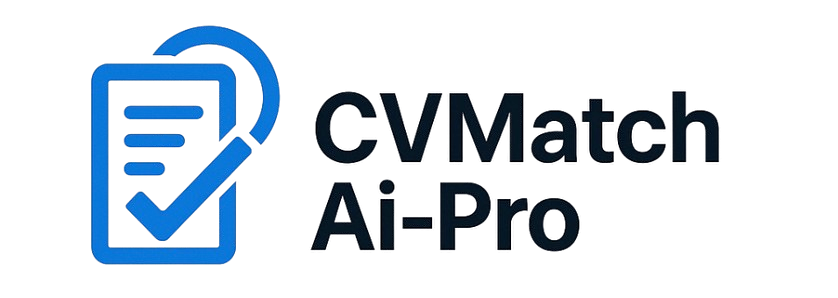Recruitment and AI: Boosting Productivity by 30%
In a world where competition for top talent is fiercer than ever, recruitment teams are under increasing pressure to deliver faster, smarter, and more efficient hiring processes. Artificial intelligence (AI) is proving to be a game-changer, with organizations reporting productivity boosts of up to 30%. Let’s explore how AI is transforming recruitment workflows and empowering HR teams to achieve more with less.
The Productivity Challenges in Traditional Recruitment
Traditional recruitment processes are often plagued by inefficiencies that slow down hiring and waste valuable resources. Manual tasks, inconsistent evaluations, and poor candidate engagement are just a few of the hurdles recruiters face daily.
Time-Intensive Manual Screening
- Screening large volumes of resumes by hand can consume hours or even days, delaying critical hiring decisions.
- Recruiters often struggle to prioritize candidates effectively, resulting in missed opportunities and lost talent.
- Manual screening is prone to errors and biases, affecting the quality and diversity of hiring outcomes.
Inefficient Communication Processes
- Coordinating interviews, sending follow-ups, and updating candidates manually create bottlenecks in the hiring funnel.
- Delayed responses damage the candidate experience, leading to disengagement and high drop-off rates.
- Administrative overload leaves recruiters with less time for strategic tasks like talent sourcing and relationship building.
How AI Drives Recruitment Productivity
AI streamlines recruitment by automating repetitive tasks, providing actionable insights, and enhancing candidate engagement. These innovations free up recruiters to focus on high-impact activities that drive better hiring outcomes.
Automated Resume Screening
- AI algorithms quickly analyze and rank candidates based on job-specific criteria, cutting screening time by up to 75%.
- Intelligent parsing tools extract key information like skills, certifications, and experience, eliminating the need for manual review.
- Automated screening ensures a more consistent and unbiased evaluation of applicants.
Predictive Candidate Scoring
- AI models assess candidates’ potential for success by analyzing historical hiring data, performance trends, and role requirements.
- Predictive scoring prioritizes top candidates, allowing recruiters to focus on those most likely to thrive in the organization.
- Smarter candidate selection reduces time-to-hire and improves overall quality of hire.
Chatbots and Virtual Assistants
- AI-powered chatbots handle initial candidate inquiries, schedule interviews, and provide updates automatically.
- Virtual assistants ensure that candidates remain informed and engaged throughout the hiring journey.
- These tools significantly reduce administrative burden while enhancing the candidate experience.
Key Areas Where AI Boosts Recruitment Productivity
By leveraging AI across the recruitment lifecycle, organizations can streamline workflows, improve decision-making, and achieve faster, higher-quality hires.
Faster Time-to-Hire
- Automation reduces bottlenecks at every stage of the hiring funnel, from sourcing to final offer.
- Faster decision-making helps secure top candidates before they accept offers from competitors.
- Shorter hiring cycles lead to lower recruitment costs and faster onboarding of new employees.
Improved Candidate Quality
- AI ensures that only the most relevant and qualified candidates advance to later stages.
- Objective assessments and predictive analytics lead to better job fits and higher retention rates.
- Higher candidate quality drives improved team performance and long-term organizational success.
Enhanced Recruiter Efficiency
- By automating repetitive tasks, recruiters can allocate more time to strategic activities like employer branding and talent pipelining.
- AI-driven insights support smarter sourcing strategies and more targeted candidate outreach.
- Recruiter satisfaction increases as their roles shift toward more meaningful and impactful work.
Looking Ahead: The Future of AI-Enhanced Recruitment
AI’s role in recruitment will continue to expand, offering even more sophisticated tools for talent acquisition. Forward-thinking organizations are already positioning AI as a core component of their hiring strategies.
Continuous Learning and Improvement
- AI systems will learn and adapt from each hiring cycle, becoming more accurate and effective over time.
- Predictive models will evolve to forecast organizational talent needs and suggest proactive sourcing strategies.
- Recruiters will collaborate closely with AI systems, using insights to optimize every aspect of the hiring process.
Human-AI Collaboration
- The future is not AI replacing recruiters but empowering them with better tools and information.
- Recruiters will become strategic advisors, leveraging AI insights to guide hiring managers and business leaders.
- Organizations that embrace this collaborative model will gain a significant edge in the competitive talent market.
Conclusion
AI is no longer a futuristic concept—it’s a present-day driver of recruitment productivity. By automating routine tasks, enhancing candidate engagement, and providing data-driven insights, AI enables recruiters to achieve more with less. Organizations that harness the power of AI in recruitment can expect not just a 30% boost in productivity, but a fundamental shift toward smarter, faster, and more strategic talent acquisition.
